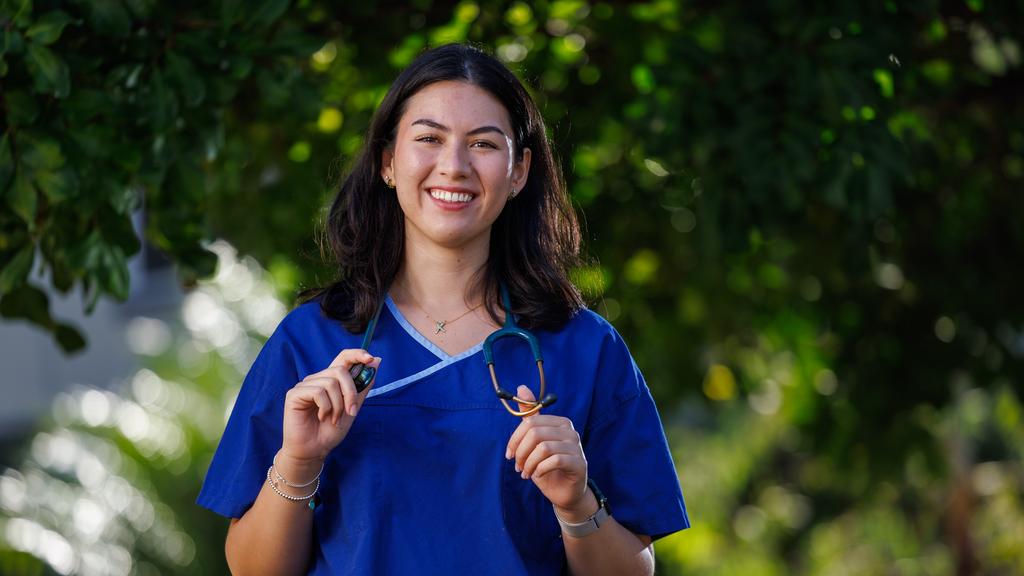Ally Egan is a fourth-year medical student at UNSW, currently completing her honours research at St George Private Hospital. While she’s focused on surgical outcomes in her research, she’s also paying close attention to the mental health and wellbeing of the people around her, and herself.
As a busy student, she was drawn to the flexibility of the Mental Health First Aid for Health Professional Students course, offered free through the UNSW Faculty of Medicine.
Designed by Mental Health First Aid in collaboration with Medical Deans Australia and New Zealand, the Australian Council of Deans of Health Sciences and the Council of Deans of Nursing and Midwifery, and funded by the Australian Government, the hybrid course includes online modules, and an in-person session designed to help health students build the skills to recognise and respond to signs of mental health problems in themselves, their peers and their patients.
“I feel like the benefit would be great if completed in the early years of our degree,” Ally said. “We only really get exposure to psychiatry later on, but we’re seeing patients from the very beginning. Also, you can’t take care of others if you’re not looking after yourself, and this course helped me learn how to do both.”
Ally first put the training into practice while on placement in a geriatric ward.
“There was an elderly patient who seemed quite distressed,” she said. “We had a conversation, and I picked up on signs that he might be experiencing a low mood. I was able to bring that up to the intern and the registrar who was supervising me. They were able to run a proper screening and address it accordingly and started him on a course of medication to better support his situation. It felt really nice just being able to be confident in picking up certain signs thanks to the course.”
The benefits of the training extended beyond clinical settings. During a stressful exam period, Ally was able to support friends who were struggling.
“There was a lot of anxiety and sadness around at the end of last year,” she said. “Just having a better understanding of what support services are available made a big difference. If I didn’t feel confident answering someone’s questions, I knew how to direct them to someone who could help.”
Ally also tutors Indigenous medical students through UNSW and says the course gave her new skills to support her students when the pressure builds.
“These students have sometimes an extra layer of stress. And just being able to navigate those conversations with them as their tutor, to reassure them and again direct to support services, if necessary, has been really, really useful,” she said.
She’s already recommended the course to her fellow students, her cousins, and beyond.
“I have recommended it to some of my friends who are also doing medicine because we’re all eligible to take the training,” she said. “I have in my personal life recommended my cousins and people that I know, to take it on as well. I feel like these are situations that everyone else encounters probably almost on a daily basis.”
For Ally, the value of Mental Health First Aid training is simple. It helps her care better, for her peers, her patients and herself.
“We’ve all gone through a tough time, and I’m sure we all know someone who’s going through something right now,” she said.
“Sometimes it’s hard to find the words to say or to know where to direct these people we care about. Part of that care involves educating ourselves so that we can help them in the best way possible. And one of the best ways to do that is the Mental Health First Aid course.”
About MHFA for Health Professional Students
Health professional students are at heightened risk of mental health issues, facing stresses during their studies and learning in high pressure clinical settings. Without intervention, this can lead to significant psychological distress.
Specifically designed for medical students, nurses, midwives, and allied health professional students, the fully funded evidence-based online training course teaches students how to recognise early signs of a mental health problem and provides practical skills to keep themselves and peers safe.



